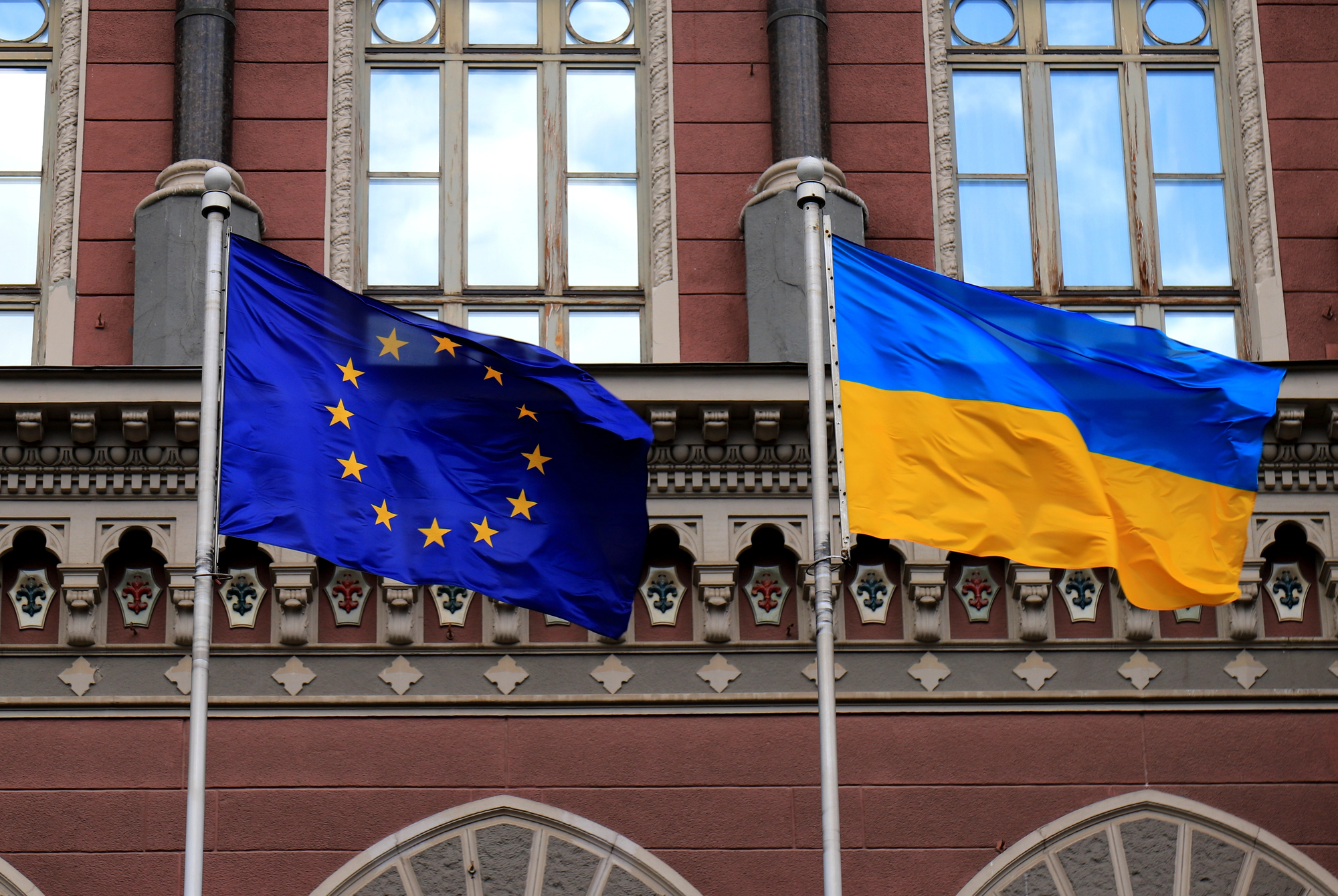Yuriy Gorodnichenko, a well-known macroeconomist, professor at the University of California at Berkeley, co-founder of VoxUkraine, told us what to expect from the economic crisis and how to mitigate its effects on business and people. He insists on the need for cooperation with the IMF and proposes not to be afraid of a budget deficit.
Yulia Mincheva: Has the crisis already started or not yet?
Yuriy Gorodnichenko: The crisis has already begun and this is a fact. Ukraine is entering a large area of turbulence. It is good that we enter this zone from good positions, we had macroeconomic stability, low inflation, the NBU was accumulating reserves – all was well.
What happened in 2009 was a disaster, the situation is much better now.
I hope GDP will not fall by 15%. But much depends on how the government and the National Bank will act. One thing needed to be done as soon as possible is to establish a program of cooperation with the IMF, because it will be very difficult for us to survive the crisis on our own, we will need help. When everything wil be on fire, it will be extremely difficult to get money from private sources. In fact, only the IMF and other governmental organizations – the European Commission, the World Bank – can be our saviors.
Andriy Fedotov: What should be the position of the National Bank on the interest rate?
Yuriy Gorodnichenko: On the one hand, it is necessary to protect the hryvnia. Large fluctuations in the hryvnia exchange rate will exacerbate panic – people will try to withdraw money from bank accounts and buy dollars. This panic should be suppressed as soon as possible. There are several tools for this. The first is raising interest rates. The problem is that this will have a negative impact on the Ukrainian economy. Loans will be expensive. Therefore, raising rates when the economy is falling is not the best solution to the problem.
On the other hand, why do we accumulate reserves? To use them during “fires”. Now, this is the situation – these reserves need to be spent to reduce market fluctuations, curb panic and gradually change the exchange rate (ed. – to depreciate the hryvnia).
The National Bank is taking the right steps: it lowers the rate to support the domestic production and spends reserves to protect the hryvnia, mitigate fluctuations and prevent panic.
Andriy Fedotov: How well is the banking market prepared for the crisis? Will the banking withstand panic on the market?
Yuriy Gorodnichenko: To begin with, the NBU is now much more professional than it was a few years ago. The NBU has done much to make the banking system more sustainable – at its insistence, banks have increased their reserves and capital. This “safety cushion” will come in handy. If people close their deposits, the banks have that money.
Second, it is now much easier for the National Bank to refinance banks. In 2014-2015, the main problem with refinancing (short-term loans to banks) was that it was not clear who would receive this money – and whether they would be withdrawn abroad. It is hard to imagine now that such is possible.
Because of this, the NBU has more leverage and resources to counteract panic and support the banking system.
We are entering into this crisis in much better shape, but we cannot relax – we need to continue the IMF program so that we have access not only to internal reserves but also to external resources.
Yulia Mincheva: If the IMF agreement is not signed, what will happen?
Yuriy Gorodnichenko: I don’t even want to think about these bad scenarios. The main thing we need to value is confidence and trust. This is the only thing that can calm the panic. Otherwise, no governments and reserves will help. It has to be reassured that even if there are not enough internal reserves, there is someone who will help us in the worst of times.
If we do not have the resources, then bank panic, an attack on the hryvnia, and the fall of industrial production can lead to a very large collapse.
Yulia Mincheva: What instruments will be used by other countries in the fight against the crisis, can we use some of them? Does rates lowering and fiscal incentives work?
Yuriy Gorodnichenko: Indeed, the space for maneuver is very limited. Interest rates can be reduced by 1-1.5%, but globally this will not change the situation. This does not mean that central banks are powerless. They can provide the financial system with liquidity in order to keep it running, loans would went to the real economy and to mitigate the impact of panic.
Fiscal stimulus package is also needed: the state has to spend more, reduce taxes and thus increase demand. Many developed countries are preparing for fiscal stimulus. Ukraine will also need to do it. The difficulty is that you have to spend more money than the state collects through taxes. You will have to borrow money. But who will give them if we are “disconnected” from the financial markets due to the failure to keep up program with the IMF?
Now there is no need to worry about a budget deficit if it is needed to support the economy
Yulia Mincheva: What is the rational behavior for a citizen and a business during a crisis?
Yuriy Gorodnichenko: I want to make an analogy here: imagine that we all sail on a ship and declare that it is sinking. For each of us, it would be most rational to run to the exit to be closer to the door. But obviously this is how panic will start, many people will die – and this behavior no longer looks optimal. It is necessary that the exit from this ship to be organized. So is the crisis.
It can be said that business does not need to hire new employees, take loans, but rather save money, but this behavior means that private demand will decline. Instead, it is better to do fiscal incentives so that people have the money they can spend.
This means that there should be cheap loans, there should be guarantees. If we have a “5-7-9” credit program, we may need to improve it to make it even easier for businesses to borrow. The state must reassure people that they “insure” in the event of a job loss – either by increasing unemployment benefits or by extending those benefits.
Yulia Mincheva: The US economy has been growing for the last 10 years. Will the coronavirus pandemic trigger the new economic crisis and start of recession?
Yuriy Gorodnichenko: Professional forecasters say the probability of a recession is very high, we expect a recession in the US in 2020. The same is predicted for the EU.
These are two major trading partners of Ukraine – they will pull Ukraine down with them. We also need to prepare for the recession.
Andriy Fedotov: How can the ongoing government reboot process affect the situation?
Yuriy Gorodnichenko: I want to give an analogy with a plane that is in the turbulence zone. Passengers unhappy that the plane is shaking decide to change the pilot. It takes a new person a while to understand what’s going on. It seems to me that in Ukraine these radical changes were not very thought out.
It is necessary to negotiate with the IMF, but it is not clear who should do it, because in some key areas we do not have the people responsible for them, and “acting ones” are unclear about their powers. I do not see the positive in this situation.
Changing the leadership of the NBU now will be just a suicide.
Attention
The authors do not work for, consult to, own shares in or receive funding from any company or organization that would benefit from this article, and have no relevant affiliations


